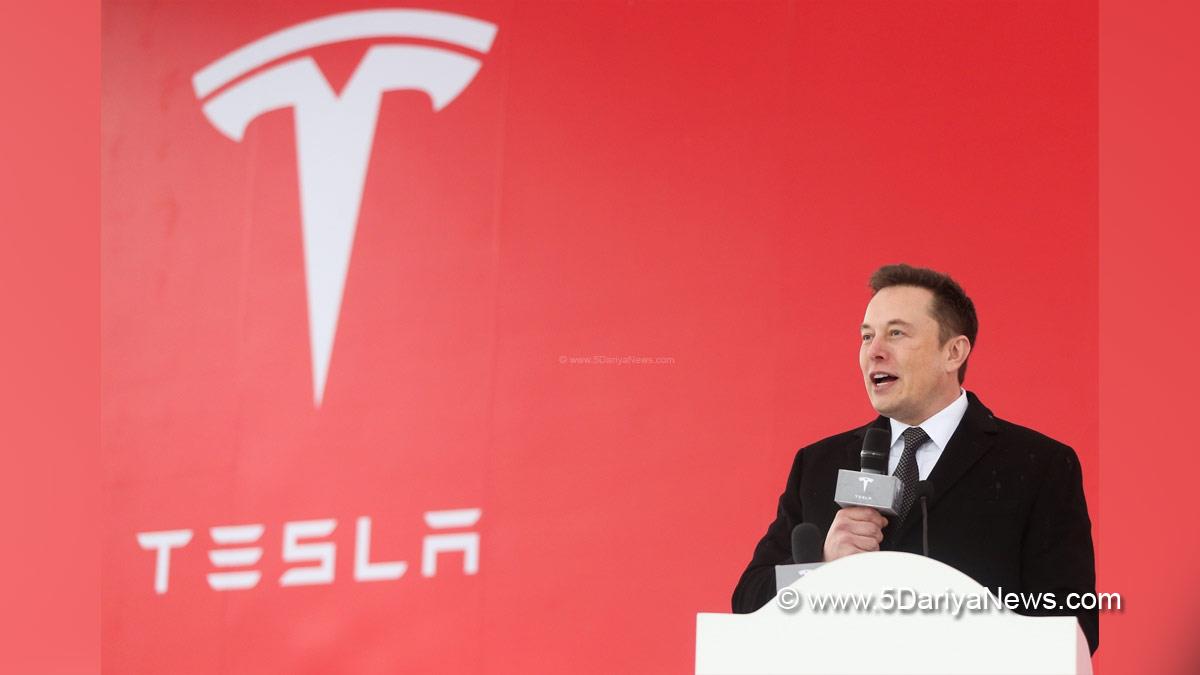Despite The Fall, Tesla Is Holding Its Own

Tesla shares fell sharply on Wednesday, dropping by 10%, after the company reported disappointing quarterly profits. Increased costs from employee lay-offs and heavy investment in artificial intelligence (AI) infrastructure were the main culprits.
The second quarter saw Tesla’s net income fall by 45% to $1.47 billion, well below analysts' expectations of $1.9 billion. Elon Musk, Tesla's CEO, used the earnings announcement to delay the launch of the company's first "robotaxis" from August to October. Despite the delay, Musk remains optimistic, claiming that these self-driving taxis could significantly boost Tesla’s market value to as much as $5 trillion, which is six times its current value.
Following these announcements, Tesla's shares dropped to $222 in early trading on Wednesday. The company’s revenue increased by 2% to $25.5 billion, just above expectations, bolstered by a large sum from regulatory credits and record growth in its energy storage business. The energy storage unit, which produces batteries for homes and businesses, deployed 9,400 megawatt-hours in the second quarter, more than double the output in the previous quarter.
However, operating expenses surged by 39% to nearly $3 billion. In April, Tesla announced a 10% workforce reduction, affecting about 14,000 employees, which resulted in significant restructuring and legal costs. Tesla has also invested heavily in its AI infrastructure, expanding its Texas gigafactory to house 50,000 supercomputer H100 chips for self-driving training.
Tesla’s gross margin fell to 18% in the quarter, down from a peak of 29.1% in the first quarter of 2022. This metric was partly supported by $890 million in regulatory credit revenues. Without these credits, the automotive gross margin would have dropped to 14.6%.
Musk has been prioritizing work on an autonomous taxi service over the development of a more affordable electric vehicle (EV), known unofficially as the Model 2, which is expected to cost $25,000. Musk first proposed a network of fully autonomous vehicles in 2016 to help Tesla owners offset their vehicle costs. He has also focused on developing Optimus, an autonomous humanoid robot. Musk said these robots are already performing tasks in Tesla factories and that limited production will start next year, with consumer availability expected by 2026.
“The value of Tesla lies in autonomy,” Musk stated. “If you believe in Tesla’s ability to solve autonomy, then you should buy Tesla stock. Everything else is just noise.”
Earlier this month, Tesla reported delivering almost 444,000 EVs between April and June, a 4.7% decrease from the previous year but an improvement from the 387,000 delivered in the first quarter. These sales helped Tesla maintain its position as the largest EV manufacturer, ahead of China's BYD.
2024 has been particularly eventful for Tesla. Musk won two contentious votes at the company’s annual meeting, where shareholders reapproved his $56 billion pay award and backed a proposal to reincorporate the company in Texas. Following these victories, Musk announced plans to move his social media company X and spacecraft group SpaceX from California to Texas, continuing his dispute with California Governor Gavin Newsom.
Musk has also become a prominent supporter of former President Donald Trump in the upcoming US election. He endorsed Trump after an assassination attempt on the former president and has helped set up a political action committee for technology investors and executives to donate to Trump’s campaign. However, Musk has denied reports that he will personally contribute $45 million a month to the campaign.
Despite Trump's previous criticism of EVs, he has softened his stance in recent months. “I’m not against electric vehicles,” Trump said at a rally in Michigan. “I’m totally for them.”
Tesla’s stock has fallen 8% over the past 12 months, with its market capitalization nearly halved from its peak of $1.2 trillion in November 2021.
World Liberty Seeks Federal Trust Charter
World Liberty Financial, the crypto venture backed by the Trump family, has applied for a US national bank trust charter... Read more
Saudi Banks Tap Overseas Markets
Saudi Arabia’s banks are borrowing from international markets at their fastest pace on record, as lenders try to squar... Read more
Amazon Continues To Cut 16000 Gone
Amazon has announced plans to cut a further 16,000 roles from its corporate workforce, extending the cost and organisati... Read more
The UK May Have A Voice In Ai
Europe’s AI sector has grown accustomed to playing catch-up. Capital has flowed more slowly than in Silicon Valley, va... Read more
Musk Applies Pressure To BT
Britain’s broadband market has spent the past decade locked in a familiar pattern. Incumbents invested heavily in fibr... Read more
Blackrock Sees EMEA Moving Into Private Assets
BlackRock has warned that investors across Europe, the Middle East and Africa are reshaping portfolios in response to wh... Read more

